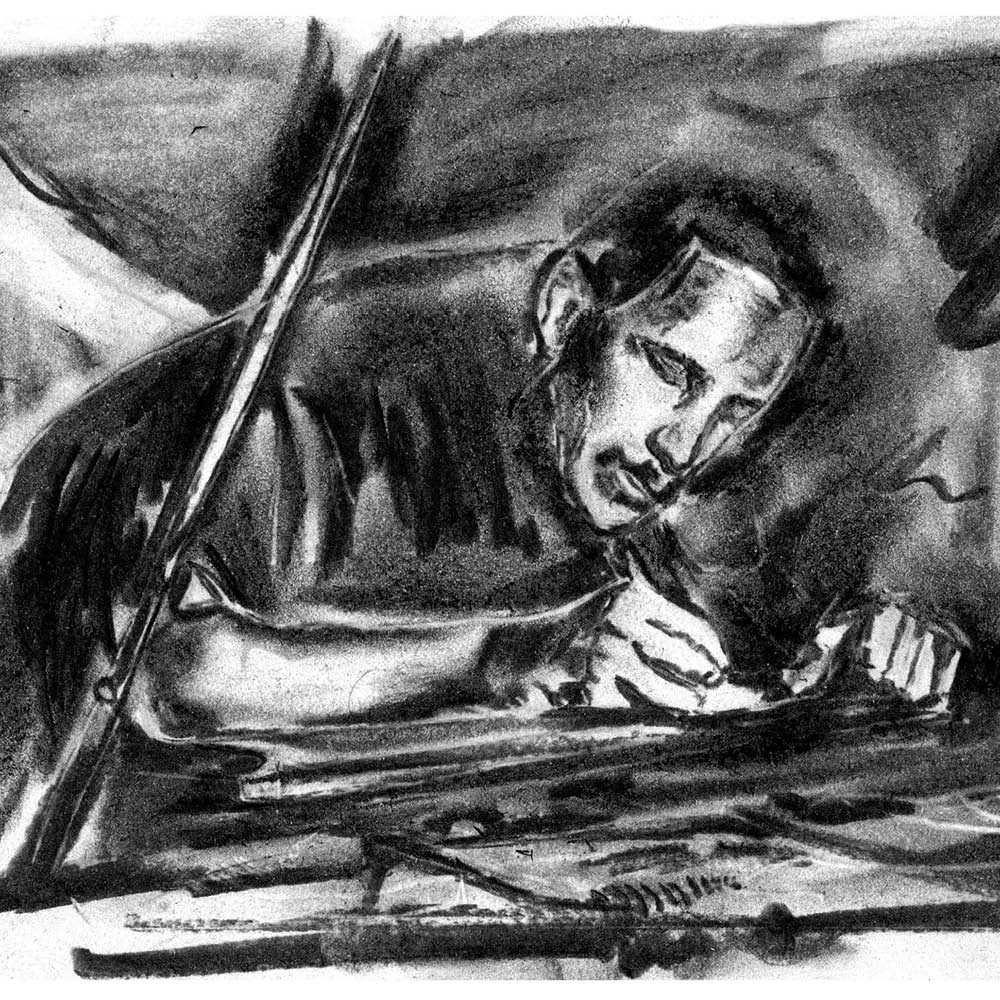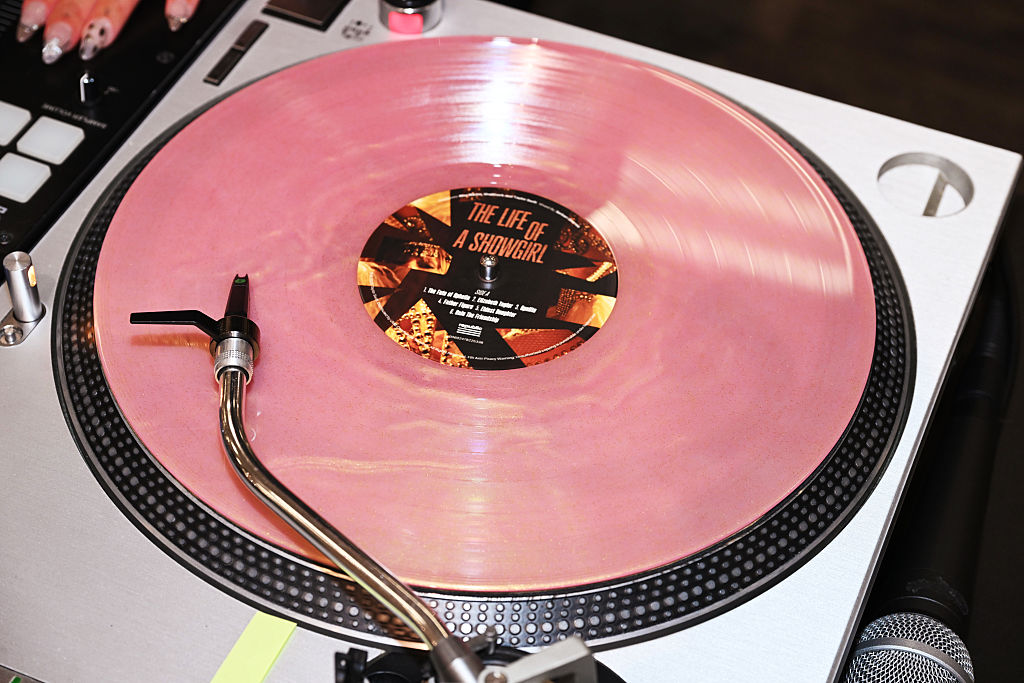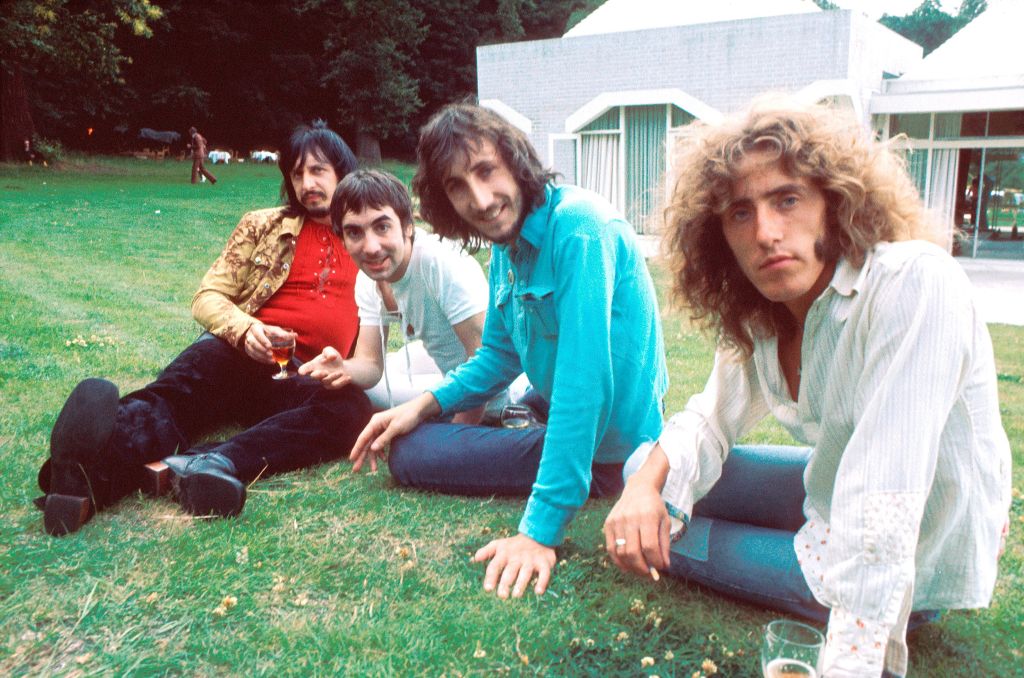Late one January night in 1945, a young black man stumbled drunkenly toward Broad Street Station in Philadelphia.
He was exhausted after playing a long set in a grotty club half a mile away. The naturally nervous musician often used alcohol to settle his unbearable over-excitements and debilitating despairs. On this occasion he had one too many. His awkward gait caught the attention of two policemen. They went to shoo him away, but instead of escorting him peacefully along, something about the twenty-year-old vexed the pair and they began to bash him about the head repeatedly with their truncheons. When the seriousness of his injuries became apparent, after he’d been slung into a frozen cell, he was taken to a hospital to recuperate. It was to be the first of many stays in asylums and hospitals over the course of his turbulent life. From that night on, he endured excruciating headaches, haunting voices and hallucinations. The assault by the cops is said to have been racially motivated. Whatever the cause, the result of this particular instance of police brutality was unusually tragic — the stunting of a decade-defining genius and artistic visionary. The victim’s name was Bud Powell; despite his undermined abilities, he was destined to become one of the most influential instrumentalists of the twentieth century.
Bud was born in Harlem on September 27, 1924. He began his musical education aged five and displayed remarkable abilities from the beginning. By the time he was a teenager, his talent was not only apparent to his parents and teachers, but recognized by everyone lucky enough to hear him practice. He excelled at Mozart’s sonatas and concertos and washed over the works of Schumann, Bach and Debussy with preternatural ease. After conquering classical, his attention turned toward jazz and from the age of sixteen, Powell was a professional jazz pianist. Jazz piano in the 1920s and Thirties was dominated by colossi like James P. Johnson and Fats Waller, who played stride, a percussive style that arose from ragtime in the early Twenties. In stride piano, the left hand maintains a distinct jocular bass rhythm while the right conjures up a complex, mesmerizing melody. By the time Powell received his beating outside Broad Street Station, stride was starting to fall out of fashion and a new generation of composers and performers were searching for a fresh sound.
Minton’s Playhouse on 118th Street in Harlem was the laboratory where a lot of eager innovators and future bebopists met and experimented in 1940. Ben Webster, Dizzy Gillespie, Charlie Parker, Charlie Christian, Miles Davis, Lester Young, Coleman Hawkins, Dexter Gordon and Thelonious Monk turned up at Minton’s during the period for what novelist Ralph Ellison described as “symposiums” of pure jazz. Bud’s interest in the avant-garde and his desire to hear the best led him there, where he played for that array of maestros.
In Monk, Powell found a kindred spirit. Monk was a budding composer and a unique performer whose difficult style often alienated him from potential partners, but he and Powell instantly understood one another. While Duke Ellington is undoubtedly the most prolific jazz composer of all time, with over a thousand songs credited to him, Monk remains the second most-recorded jazz composer of all time, despite only having composed seventy songs. Mutual friends all agree that Monk wrote his greatest pieces with Powell in mind.
Monk was five years older than Powell and suffered from similar mental ailments; he often felt a brotherly responsibility to encourage Powell and protect him. When Monk’s mother was dying from cancer in her Harlem apartment, Monk kept vigil over her sickbed. In a manic mood, Powell burst through the apartment door and swung around wildly, spitting out vituperations over imagined offenses. To soothe him, Monk proposed they take a drive, whereupon a police patrol noticed the two men and decided to carry out a stop and search. As they approached, Powell tried to throw out a small envelope of heroin, which missed the window and landed by Monk’s feet. Though Monk denied ownership, he refused to implicate Powell, knowing the strain of another incarceration would be too much for the pianist to bear. The possession charge meant Monk’s cabaret card — his license to play in New York — was revoked, but he maintained his loyalty to Powell.
By the end of the Fifties, Powell had been hospitalized and arrested countless times. A New York court eventually deemed him “mentally incompetent” and he entered the guardianship of a nightclub proprietor called Oscar Goldstein. His guardianship was eventually relayed to his new spouse, Altevia Edwards, who convinced Powell to move with her to Paris, where, she argued, more work would be forthcoming and audiences more appreciative. The emigration was both good and bad for Powell: he got a lot of work done, played some excellent sessions, albeit with less adeptness than before, and developed a new European fanbase. But his mental wellbeing took a hit. Powell had been readmitted to hospitals and asylums many times since the altercation in Philadelphia; he had undergone all manner of psychiatric treatments, from experimental medications to electroshock therapy. The toll these severe treatments took on his talent was irreversible. He lost his liveliness and was noticeably distracted and frustrated during performances.
In 1964 Powell left his life in Paris behind to play in a trio at the legendary Birdland club in New York. But these shows were plagued by disagreements between the band members. Aged beyond his years by alcohol and drugs, Powell died at forty-one in 1966. His funeral procession through Harlem was an unforgettable gathering of jazz giants and distraught friends and fans.
There was one night in 1950, though, when Powell experienced something like the level of praise his genius deserved. He played at Birdland alongside his idol Art Tatum. Belonging to the stride tradition, Tatum had earlier denigrated Powell’s abilities. That night he called him “just a right-handed piano player.” Hearing this, Powell proceeded to play the next number at breakneck speed, using only his left hand. After this demonstration, Tatum said to a fellow onlooker, “Don’t tell the kid I said it, but I was wrong. He’s got one helluva left hand.”
Herbie Hancock described Powell as the foundation from which sprang the whole edifice of modern jazz piano. Powell’s interpretations of standards were often lively, always unexpected, highly satisfying and idiosyncratic — qualities every pianist wants to be credited with. Some jazz performers are inherently upbeat and play sad songs cheerfully. Some impress their melancholy on the happiest standards. Bud certainly brooded but it wasn’t over a feeling of hopelessness. He cherished the few joys in his life and celebrated them through his innovative approach to the piano. There is sheer joy to be had in slapping on a Bud Powell album at the end of an arduous day and marveling at his intricacies, originalities and execution. Next time you have nothing on, do yourself a favor and look him up on Spotify or YouTube, take a deep breath and press play. If you aren’t dazzled, you need to get your ears checked.
This article was originally published in The Spectator’s October 2024 World edition.























Leave a Reply